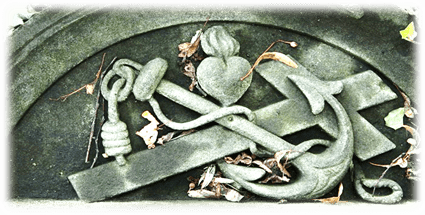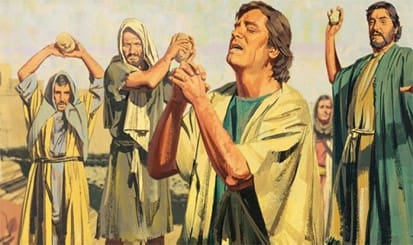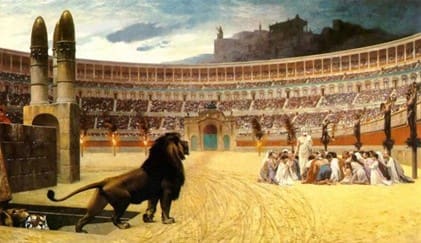· Is America in the long-term process of becoming a model of democracy, and we are at a point of recalculation?
· Is America under the judgment of God for its rejection of His Word, and we are about to be severely disciplined?
· Has America fulfilled its purpose and its imminent demise is the next step in God’s unfolding drama of our redemption?
This sermon’s title is “Is America in Biblical Prophecy?”
While I want to rejoice when I read the reports of a “flash revival” or “massive baptism,” in all honesty, I cringe. Unless those “decisions” are qualified and manifested into true “conversions,” according to Matthew 25:15, those well-meaning efforts could make that person twice as hard to reach with the true gospel.
The validation of our salvation is not manifested by a lost person’s decision but rather by the total transformation of their lives. They no longer walk according to the course of this world, doing whatever they want to satisfy the desires of the flesh. They walk in the pursuit of holiness, without which no one will see God.
The title of this sermon series is “How Should We Then Live?” The answer, of course, is to live “in Christ” so that others see the hope within us and be drawn to Him. In this sermon we will look at “The Validation of Our Salvation.”
Worship is our necessary and proper response to the gracious acts of God on our behalf. For ancient Israel, their times of worship each week, as well as their annual festivals, were in response to what God had done for them in delivering their forefathers from their bondage in Egypt. Christians gather on the Lord’s Day to celebrate and what God has done to set us free from our bondage to sin through the birth, life, death, and resurrection of Jesus Christ.
Centuries have passed, but the Jews still celebrate what God did for them in Egypt. When was the last time you celebrated your salvation? Actually, that is why we do what we do each Sunday morning when we assemble ourselves together for worship and give the Lord the glory for the many things He has done.
The title of this sermon series is “How Should We Then Live?” The answer, of course, is to live “in Christ,” so that others see the hope that is within us and be drawn to Him. In this sermon, we will look at “The Celebration of Our Salvation.”
In his latest book, “Letter to the American Church,” Eric Metaxas calls today’s Christians to wake up, stand up, shake off the cowardice that masquerades as meekness, and speak up, or else be quiet about the sinful culture in which we live today.
To quote Michael Youssef, Senior Pastor of the Church of the Apostles in Atlanta, Georgia, “If you love God’s church, and if you want people to know the truth about God, heaven, hell, and eternity, you must read the book. If you care about the kind of world your children, grandchildren and great-grandchildren will live in, you have no choice; you have to read the book.”
The title of this sermon series is “How Should We Then Live?” The answer, of course, is to live “in Christ,” so that others see the hope that is within us and be drawn to Him. In this sermon, we continue to look at “The Assurance of Our Salvation.”
Our hearts are broken regarding the gruesome murder of Davy and Natalie Lloyd, who were full-time missionaries in Haiti. Certainly, their parents, relatives, and friends are stunned by the senseless slaughter of these two young people who had dedicated their lives to show God’s love to a few of the disadvantaged children in Haiti – but such a risk is part of the call to missions.
On the other hand, our hearts are encouraged by Harrison Butker’s bold stand, given the caustic criticism he has received from the “woke” culture crowd for his pro-marriage, pro-family, and pro-life positions. In response to their disbelief that a major football player would have such outdated, conservative Christian values, Butker said, “I lean on those closest to me for guidance. But I can never forget that it is not people but Jesus Christ who I am trying to please.”
Beloved, the Apostle Peter said, every Christian has been called to endure such suffering, even martyrdom. In fact, Peter said our response to suffering and persecution reveals the authenticity of our relationship with Christ. So, when such opportunities arise in our lives, we are to “Rejoice, so that the genuineness of our faith—more valuable than gold, which perishes though refined by fire—may result in praise, glory, and honor at the revelation of Jesus Christ.” (1 Pet. 1:6–7 HCSB).
The title of this sermon series is “How Should We Then Live?” We aim to reveal what the Scriptures define as an “Authentic Christian.” In this sermon, we continue to look at the scriptures that give us “The Assurance of Our Salvation.”
Years ago, Oswald Chambers wrote: “Satan’s great aim is to cause us to be devoted to the death to a cause; any enterprise, any type of movement or ministry, other than to the Person of Jesus Christ.” Since Satan realized he couldn’t destroy the church, he did the next best thing – he produced a counterfeit Christianity! Whereas the goal of every authentic Christian is self-discipline, self-denial, and even self-detriment, if necessary to authenticate our witness, the goal of the counterfeit church is self-acceptance, self-achievement, and self-enrichment – in effect, using the name of God to get the same things Satan promised those who worship him.
Satan also raised up a new crop of counterfeit preachers who are willing to say whatever the congregation wants to hear as long as they tickle his ears with praise and line his wallet with cash, for they are but hirelings and not true God-called shepherds. Sadly, the pulpits are filled with many of them today.
The title of this sermon series is “How Should We Then Live?” Our purpose is to declare what the Scriptures define as an “Authentic Christian” for there are many false professors among the true confessors, and they are giving Christianity a bad name.
Given the spiritual condition of today’s church, I believe God’s people need to spend much more time in the Psalms, for while the Psalms reveal both the intellectual and devotional aspects of our daily walk with the Lord, the Psalms also show us how to connect with God through prayer, and how to hear from God through His Word.
This Sunday evening, I will cover Psalms 5 under the heading, “A View of David’s Quiet Time.”
The title of this sermon series is “How Should We Then Live?” Our purpose is to declare what the Scriptures define as an “Authentic Christian” for there are many false professors among the true confessors, and they are giving Christianity a bad name.
Perhaps the first place to begin is in our “calling,” for in 2 Peter 2:10, the Apostle urged his readers to “be all the more diligent to make your calling and election sure.”
· In 2 Thessalonians 2:13, the Apostle Paul said, “We should always give thanks to God for you, brethren beloved by the Lord, because God has chosen you from the beginning for salvation through sanctification by the Spirit and faith in the truth.”
· In John 6:37, Jesus said, “All that the Father gives Me will come to Me, and the one who comes to Me I will certainly not cast out.”
Admittedly, the two concepts don’t seem to go together. However, both are true, and we must accept them both by faith. Our faith in Jesus Christ as our Savior rests entirely on God’s election. And yet the day we heard the gospel and received Jesus Christ as our Savior, we did so because of an internal desire, but even that desire was God-given — He supplied the necessary faith so we could believe (Eph. 2:8).
The Sunday morning sermon is titled: “How Should We Then Live?” The Search for Authentic Christianity # 3
For the next 12 Sunday evenings, (except June 2), I will preach a series of sermons on selected Psalms. Given the spiritual condition of today’s church, I believe God’s people need to spend much more time in the Psalms, for while the Psalms reveal both the intellectual and devotional aspects of our daily walk with the Lord, in the Psalms, we also learn how to connect with God through prayer, showing us how to pray, and then how to hear from God through His Word.
This Sunday evening, I will cover Psalms 1 and 2 under the heading, “Contrasting the Righteous and the Wicked.” Beloved, even though these Psalms are 3,000 years old, it will seem as if we are reading today’s news.









